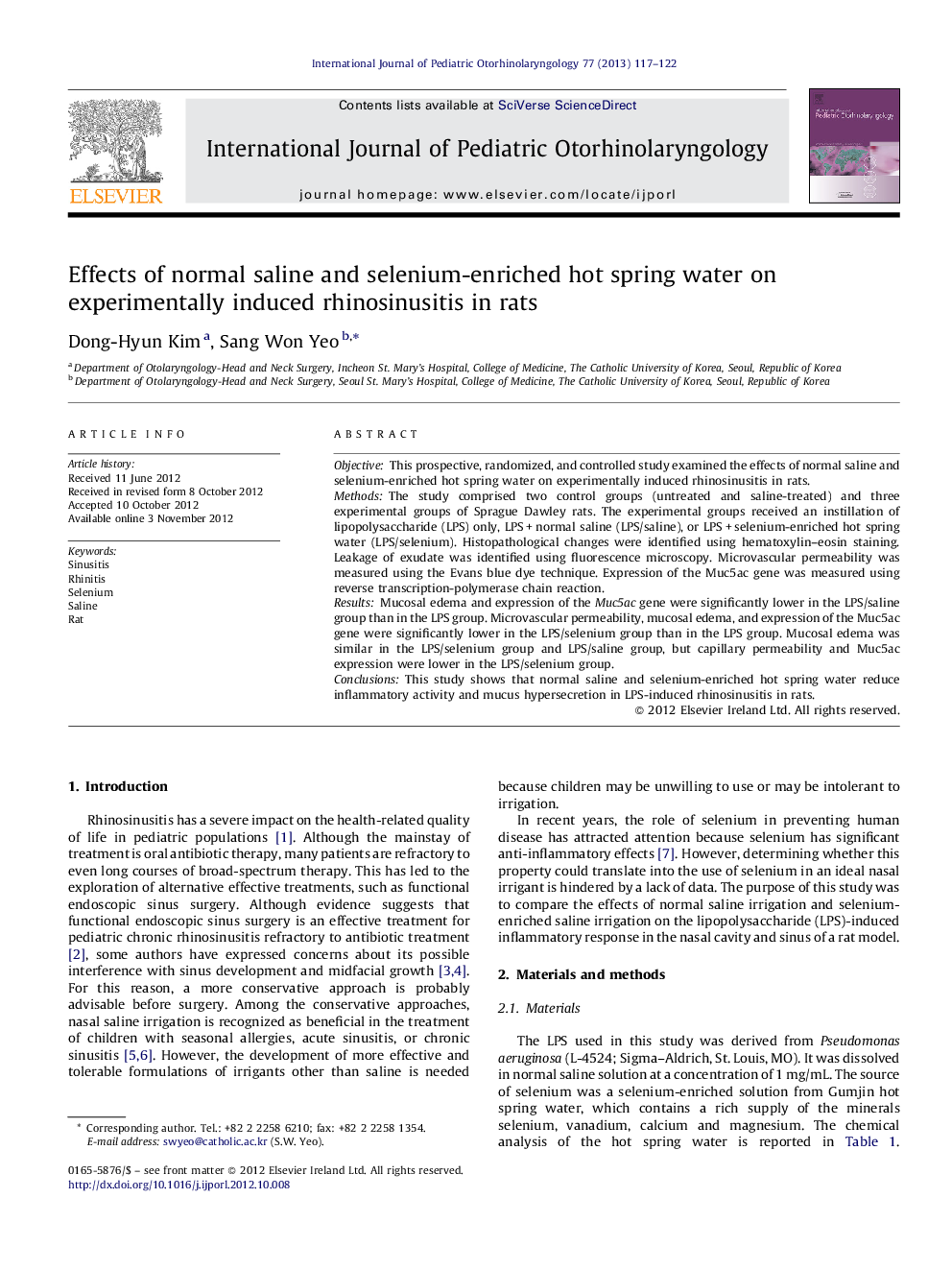| Article ID | Journal | Published Year | Pages | File Type |
|---|---|---|---|---|
| 6214016 | International Journal of Pediatric Otorhinolaryngology | 2013 | 6 Pages |
ObjectiveThis prospective, randomized, and controlled study examined the effects of normal saline and selenium-enriched hot spring water on experimentally induced rhinosinusitis in rats.MethodsThe study comprised two control groups (untreated and saline-treated) and three experimental groups of Sprague Dawley rats. The experimental groups received an instillation of lipopolysaccharide (LPS) only, LPSÂ +Â normal saline (LPS/saline), or LPSÂ +Â selenium-enriched hot spring water (LPS/selenium). Histopathological changes were identified using hematoxylin-eosin staining. Leakage of exudate was identified using fluorescence microscopy. Microvascular permeability was measured using the Evans blue dye technique. Expression of the Muc5ac gene was measured using reverse transcription-polymerase chain reaction.ResultsMucosal edema and expression of the Muc5ac gene were significantly lower in the LPS/saline group than in the LPS group. Microvascular permeability, mucosal edema, and expression of the Muc5ac gene were significantly lower in the LPS/selenium group than in the LPS group. Mucosal edema was similar in the LPS/selenium group and LPS/saline group, but capillary permeability and Muc5ac expression were lower in the LPS/selenium group.ConclusionsThis study shows that normal saline and selenium-enriched hot spring water reduce inflammatory activity and mucus hypersecretion in LPS-induced rhinosinusitis in rats.
